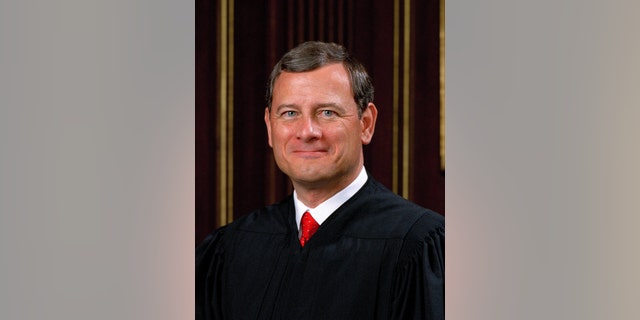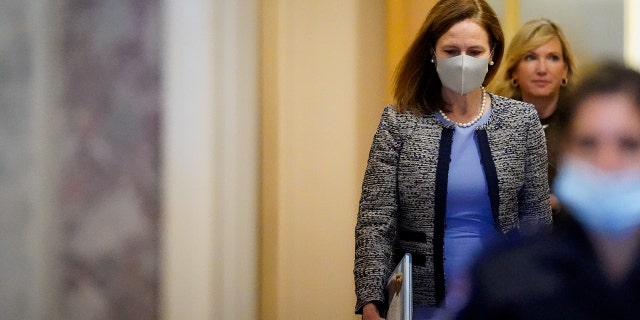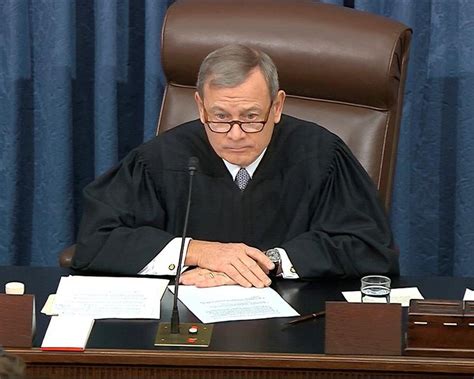By Shannon Bream , Bill Mears
Chief Justice John Roberts asserted the independence of the federal courts from what he called “inappropriate political influence,” in a year-end report released Friday that comes amid widespread political criticism of the Supreme Court, and calls to dramatically reform its structure.
As head of the federal judiciary, the chief justice of the United States summarized a dramatic year at his court and the 107 district and appeals courts across the country.
“Decisional independence is essential to due process, promoting impartial decision-making, free from political or other extraneous influence,” said Roberts. Of equal importance, “The Judiciary’s power to manage its internal affairs insulates courts from inappropriate political influence and is crucial to preserving public trust in its work as a separate and co-equal branch of government.”
Roberts, who has led the court since 2005, made his remarks on the upcoming 100th anniversary of the Judicial Conference, the federal courts’ internal administrative and policy-making body, led by the chief justice and composed of rotating federal judges.
He said the Conference has been focused on ensuring the courts run effectively despite disruptions caused by the pandemic, as well as unspecified cybersecurity threats.

Official portrait of U.S. Supreme Court Chief Justice John G. Roberts.
And Roberts said the court was working to reduce lapses in ethics and recusal rules for federal judges presiding over cases with which they may have a personal or financial interest, such as owning stock in a company. He cited a recent Wall Street Journal report, detailing 685 such ethics violations involving 131 federal judges in a recent nine-year period, which Roberts said was a small fraction of the 2.5 million civil cases heard.
Nevertheless, said Roberts, “Collectively, our ethics training programs need to be more rigorous.”
The chief justice also proposed “new protections” to deal with instances of what he called “inappropriate behavior in the judicial workplace,” including previous reports of sexual harassment by federal judges.
Although Roberts noted “criticism of the courts is inevitable,” he did not mention President Biden’s Commission on the Supreme Court, a group of academics and lawyers appointed to explore sweeping changes to the Supreme Court.
While not making any formal recommendations, the commission debated adding term limits and increasing the number of justices from the current nine. White House press secretary Jen Psaki said this month there is no time frame for when Biden will review the panel’s report, but many Democrats pushing for reform are not optimistic the president will do much on this, at least in a midterm election year.
The impetus for the commission’s creation came amid simmering anger by some progressives the current conservative high court is too political, following former President Trump’s appointments of three justices in his single term, tilting the court to a 6-3 conservative majority.
“One of the things that frustrates Democrats and liberals is there’s only been four Democratic appointments to the Supreme Court of the last 53 years, two by Obama and two by Clinton,” said Paul Smith, a Georgetown University law professor who has argued before the high court.
The high-profile and politically-charged confirmations of Justices Neil Gorsuch, Brett Kavanaugh, and Amy Coney Barrett have inevitably focused renewed attention on the court’s broader reputation.
More Americans now have a negative view of the job the Supreme Court is doing. Just 42% approve and 45% disapprove, according to a Monmouth University (NJ) survey from September. Just five years ago, the numbers were 49% approve, 33% disapprove.
That led to several justices taking the rare step of speaking out in recent months, over suggestions judges are becoming too partisan.
“I think the media makes it sound as though you are just always going right to your personal preference,” Justice Clarence Thomas said in September remarks. “So if they think you are anti-abortion or something personally, they think that’s the way you always will come out. They think you’re for this or for that. They think you become like a politician. That’s a problem. You’re going to jeopardize any faith in the legal institutions.”

Days later, Barrett was more blunt: “My goal today is to convince you that this court is not comprised of a bunch of partisan hacks,” she told a forum in Kentucky hosted by Senate Minority Leader Mitch McConnell, R-Ky., in September.
Justices Stephen Breyer and Samuel Alito also sought to defend the integrity of the courts.
“The court is sensitive to that,” said Smith. “The chief justice frequently speaks on this subject as well and says, no, no: we don’t look at our rulings from the point of view of our personal ideology. So there is a bit of a bit of a heightened level of concern on the part of the justices that the public is losing faith in the court.”
Whether fair or not, questions over the court’s decision-making are unlikely to die down anytime soon, judging by its docket. Hot-button issues like abortion access and gun rights, as well as religious liberty, climate change and the environment, immigration, and the death penalty will be decided before the court’s term ends in late June.
And next week, the justices will hear a pair of appeals from GOP-led states and private businesses, over enforcement of two of the Biden administration’s nationwide vaccine mandates, potentially affecting millions of American workers.
The federal policies would impact certain healthcare workers and those employed at larger businesses, and were scheduled to be separately implemented early in the new year. The high court fast-tracked consideration of whether the regulations can go into effect for now, and will be a major test of federal agency discretion to implement nationwide workplace policies, especially during a health crisis.
The separate abortion issue is especially divisive, with many legal experts predicting the constitutional right to the medical procedure– guaranteed in the 1973 Roe v Wadedecision– will be struck down or severely limited.
At issue: whether any state law that prohibits pre-viability elective abortions is unconstitutional. Mississippi officials are boldly asking the court to overturn the Roe precedent, where abortions are legal nationwide until about the 24th week– the point of viability where the fetus can survive outside the womb.
Mississippi’s law would ban abortions after 15 weeks, which the court appeared to tentatively endorse when the case was argued in December.
“This Court has never recognized— and then taken away— a fundamental right that millions of Americans have relied on to determine the course of their lives and participate as equals in American life,” said Elizabeth Wydra, president of the left-leaning Constitutional Accountability Center.
But Carrie Severino, president of the right-leaning Judicial Crisis Network, said the issue of state discretion to pass abortion restrictions was a key talking point for the court conservatives.
“The Constitution doesn’t say anything one way or the other about abortion, which means it should be left to the states,” Severino told Fox News.
In a separate appeal over abortion rights decided three weeks ago, the Supreme Court allowed a lawsuit by abortion providers in Texas to proceed over the state’s six-week ban.
But the Court did keep the law’s enforcement in effect, while the case continues to be litigated. It was a split ruling that does not deal with the constitutionality of the Texas law.
Besides cases currently on the docket, the high court in coming weeks could add even more hot-button petitions, including a pending dispute over Harvard University’s admissions policies.
Some Asian American students are challenging the discretionary use of race in the admissions process as one way to achieve campus diversity. They say the affirmative action policies make it easier for some Black and Hispanic students to be admitted, at the expense of Asian American students.
There is also a pending appeal over whether the House Select Committee looking into the Jan. 6 riots at the Capitol can have access to documents from former president Trump. He has exerted executive privilege in an effort to shield their release.
Other upcoming cases awaiting consideration by the justices include voting access restrictions; and whether businesses can deny certain services to LGBTQ individuals, based on religious liberty claims.
One change in the federal courts well underway came with a new occupant in the White House. Unlike the two previous Democratic predecessors, President Biden has been aggressive appointing federal judges, getting more of them confirmed in his first year than any president since Ronald Reagan in 1981.
Biden’s 40 lifetime appointments so far include 11 on the federal appeals courts, among them Judge Ketanji Brown Jackson, who has been mentioned as a possible Supreme Court nominee, if a vacancy were to occur in his presidency.
While campaigning in 2020, Biden had pledged to name the first Black woman to the high court, if given the chance. Jackson, 51, replaced now-Attorney General Merrick Garland on the high-profile U.S. Court of Appeals for the District of Columbia. Recent justices who earlier served on that appellate bench include Roberts, Thomas, Kavanaugh, and the late Ruth Bader Ginsburg and Antonin Scalia.
Read More From The PatriotAmerican
Biden last week also nominated Judge Michelle Childs to fill a separate D.C. Circuit vacancy, and would be the president’s second Black woman on that bench.
The high court’s oldest member Justice Stephen Breyer, 83, has deflected suggestions he is ready to retire. Jackson is a former Breyer law clerk.
Overall, Biden’s judicial choices have been diverse. Of his 75 nominees to the bench, about three-quarters have been women, two-thirds people of color, and half women of color.

